Do cats keep mice away? An expert reveals whether this is actually true
Do cats keep mice away? You shouldn’t bet on it but never fear, there are humane deterrents that will keep those pesky rodents at bay.
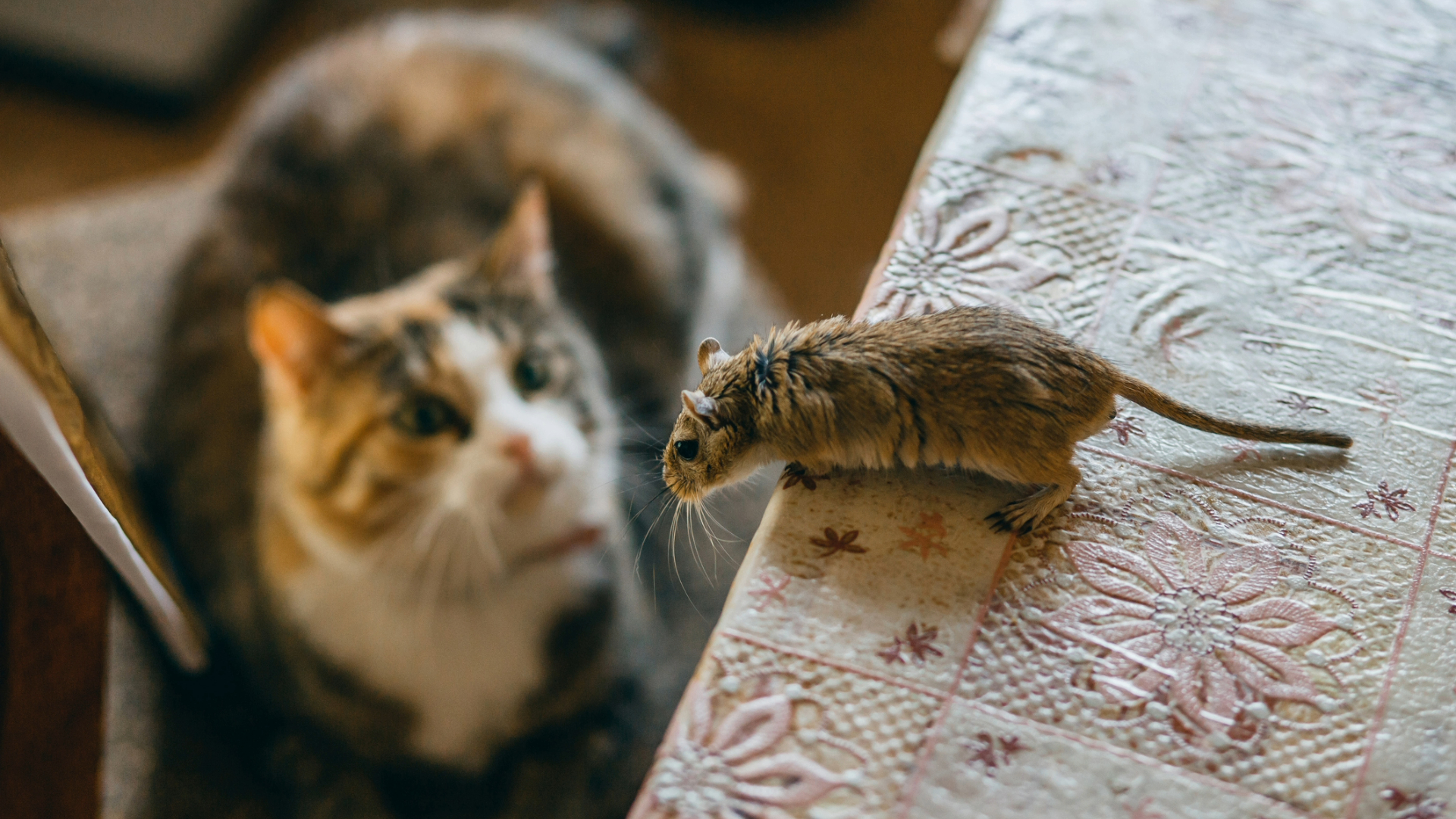
Get the best advice, tips and top tech for your beloved Pets
You are now subscribed
Your newsletter sign-up was successful
Do cats keep mice away? If you’ve ever wondered if having a cat is the ultimate mouse deterrent, you’re not alone. The age-old question of whether cats repel rodents is a topic that has sparked many debates.
While it’s true that some felines can be considered pest control experts, switching into hunting mode the minute they catch sight of a mouse, it's not a universal trait. Your kitty may love pouncing on the best cat toys but couldn’t care less about chasing mice.
That’s why we asked Debbie Bryon, a clinical animal behaviorist and registered vet nurse with over 20 years experience living and working with cats, to reveal the factors that influence our feline companion’s predatory instincts.
We also asked whether hunting mice can pose a danger to cats and the best ways to humanely keep mice away from your home without having to rely on your furry friend’s hunting skills.
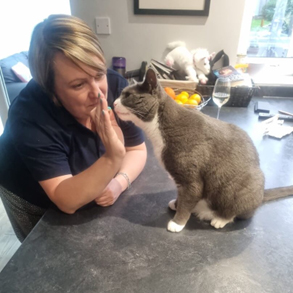
Debbie Bryon is a certified clinical animal behaviorist, animal training instructor, and registered vet nurse with over 20 years experience working with cats, dogs, rabbits, rodents, and a range of other species. Debbie holds a BSc in Veterinary Nursing Science, the Nurse Certificate in Animal Behavior, and a Postgraduate Diploma in Clinical Animal Behavior. She is an accredited member of the Fellowship of Animal Behavior Clinicians and the Association of Pet Behavior Counsellors, and is listed on the Animal Behavior and Training Council register. Debbie is the founder of Positive Pet Behaviour, offering a range of behavioral consultations and training solutions. Using scientific methods and research, she supports guardians to understand why their pets are acting the way they are and what is driving their behavior.
Do cats keep mice away?
Do cats keep mice away? African wildcats, the ancestors of our domestic cats, were attracted to early farming settlements by the large numbers of mice found in grain stores and ever since then our feline friends have been celebrated as natural pest controllers.
But do cats eat mice? “Cats are obligate carnivores and have to eat meat to survive. This drives a strong ethological need to hunt small prey and mice fit this bill perfectly,” cat behaviorist and vet nurse Bryon explains. “Cats will normally hunt many times throughout the day, though less than 50% of their hunts are likely to be successful.”
Cats also have different prey preferences. Though most are attracted to the unpredictable skittering movements and high-pitched squeaking and scratching sounds of rodents, some are more interested in hunting birds, while others specialize in stalking reptiles or insects.
Get the best advice, tips and top tech for your beloved Pets
The presence of a cat can deter mice, as they have an inherent aversion to the smell of cat urine. While this may keep rodents away from some areas of your home, it’s likely that they will hide under the floorboards or inside cavity walls to avoid encountering a feline foe.
A study published in the PLOS One journal revealed that mice infected with the single-celled parasite toxoplasma gondii permanently lose this hardwired aversion to feline urine and may actually be attracted to cat odors.
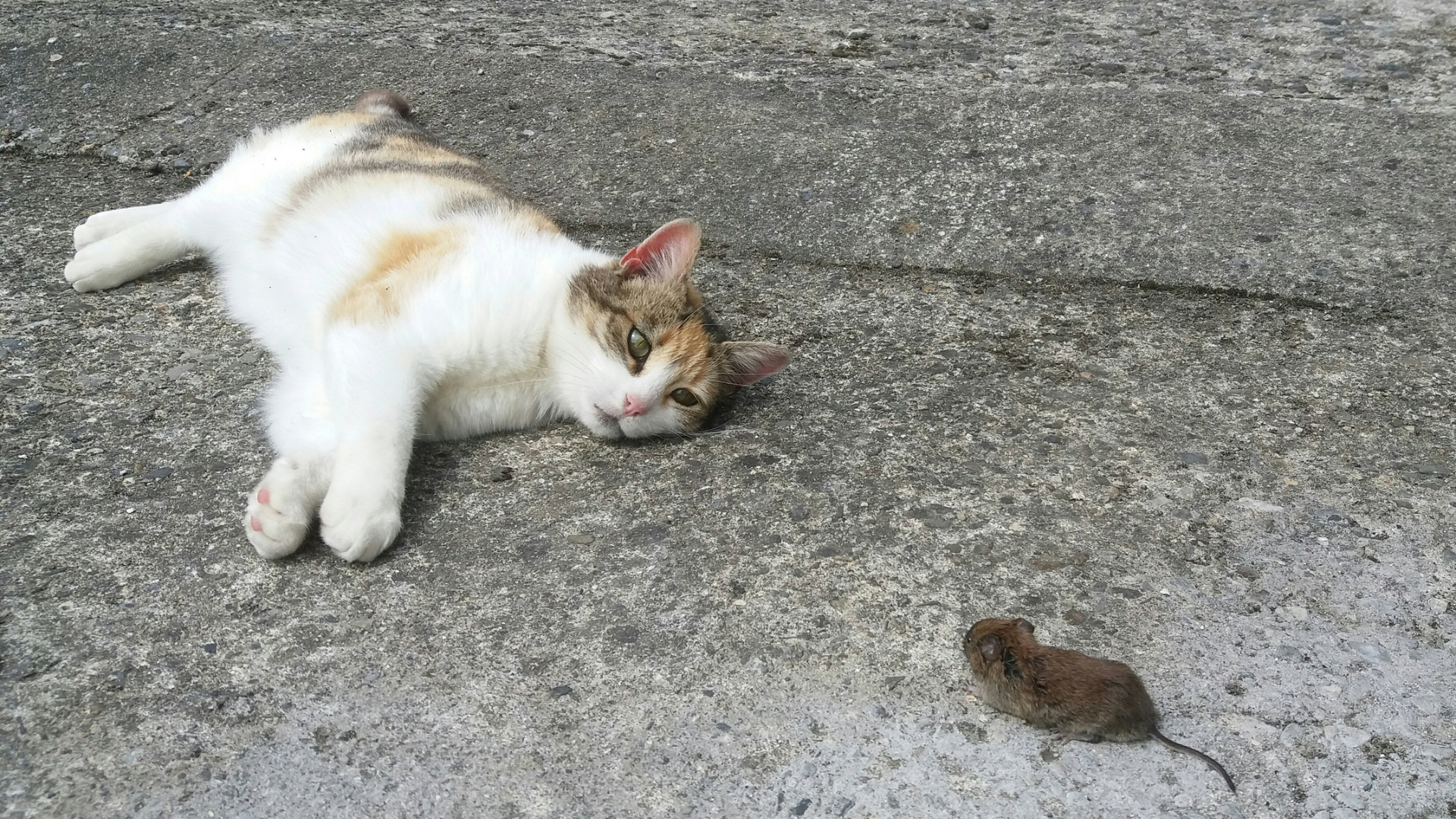
Do all cats like to hunt mice?
Every cat is unique, so while all cats exhibit innate predatory behavior, they don’t all have a strong inclination to hunt mice. Many felines will actively go out hunting for mice and are primed to pounce the minute they catch sight of movement in the undergrowth. Others won’t bat an eye if a mouse scurries across the floor in front of them, and some kitties are actually afraid of rodents.
“The desire to hunt can vary greatly between individuals, as predatory drive is influenced by factors including a cat’s genetics, environment, and early socialization,” Bryon explains.
Certain breeds like maine coons and bengals are renowned for their high predatory drive and exceptional hunting skills. There are also differences between indoor vs outdoor cats. Cats raised in environments where they are encouraged to hunt, like barns, farms and stables, may develop stronger hunting instincts compared to those raised indoors.
Well fed house cats are likely to pursue mice for fun rather than because they’re hungry. If your cat is a keen hunter, they may bring live mice into the house rather than keeping them away.
Bryon explains, “Often cats will bring their prey home and not actually eat it because they prefer the taste of the food in their bowl to raw mouse.”
But she cautions, “Don’t try to forcibly prevent hunting, as this may lead to frustration or redirection of predatory behavior towards you.”
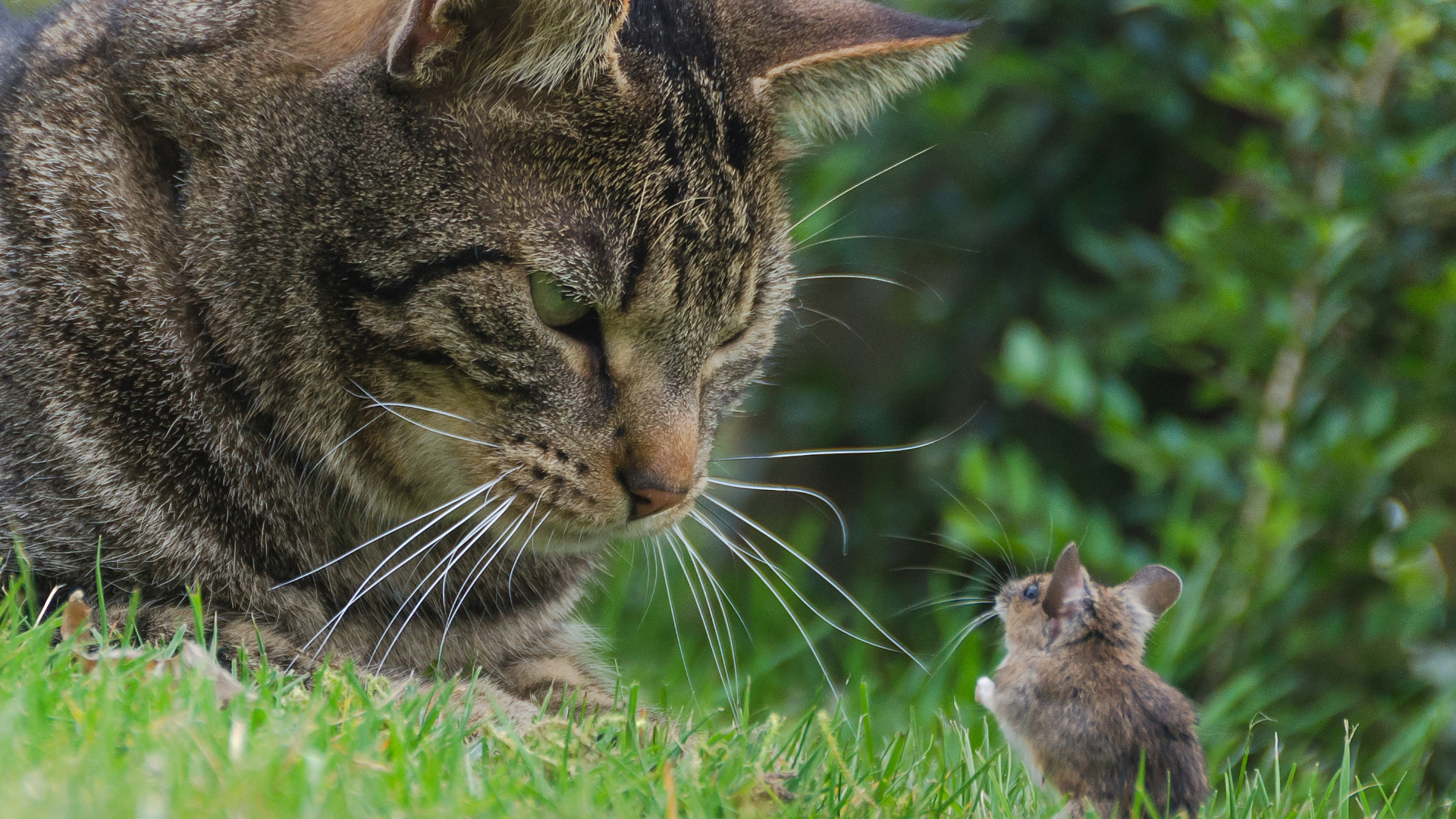
Can mice be dangerous to cats?
So, should you intervene if your cat catches a mouse? While our furry friends enjoy chasing and catching rodents, there are potential dangers associated with this behavior.
“One of the main concerns is the transmission of diseases,” explains Bryon. “Mice carry pathogens, including bacteria and viruses which may be harmful to cats if they come into contact with infected organs, blood, saliva, droppings, or parasites. Cats can contract many diseases from mice, including salmonella, cowpox, toxoplasmosis, leptospirosis, tularemia, yersinia pestis and hantavirus, which have the potential to cause serious illness and can even be fatal.”
Rodents also host intestinal worms, mites, ticks, and fleas, which can infest cats, causing problems from skin irritation and gastrointestinal discomfort to organ damage, anemia, and the transmission of diseases.
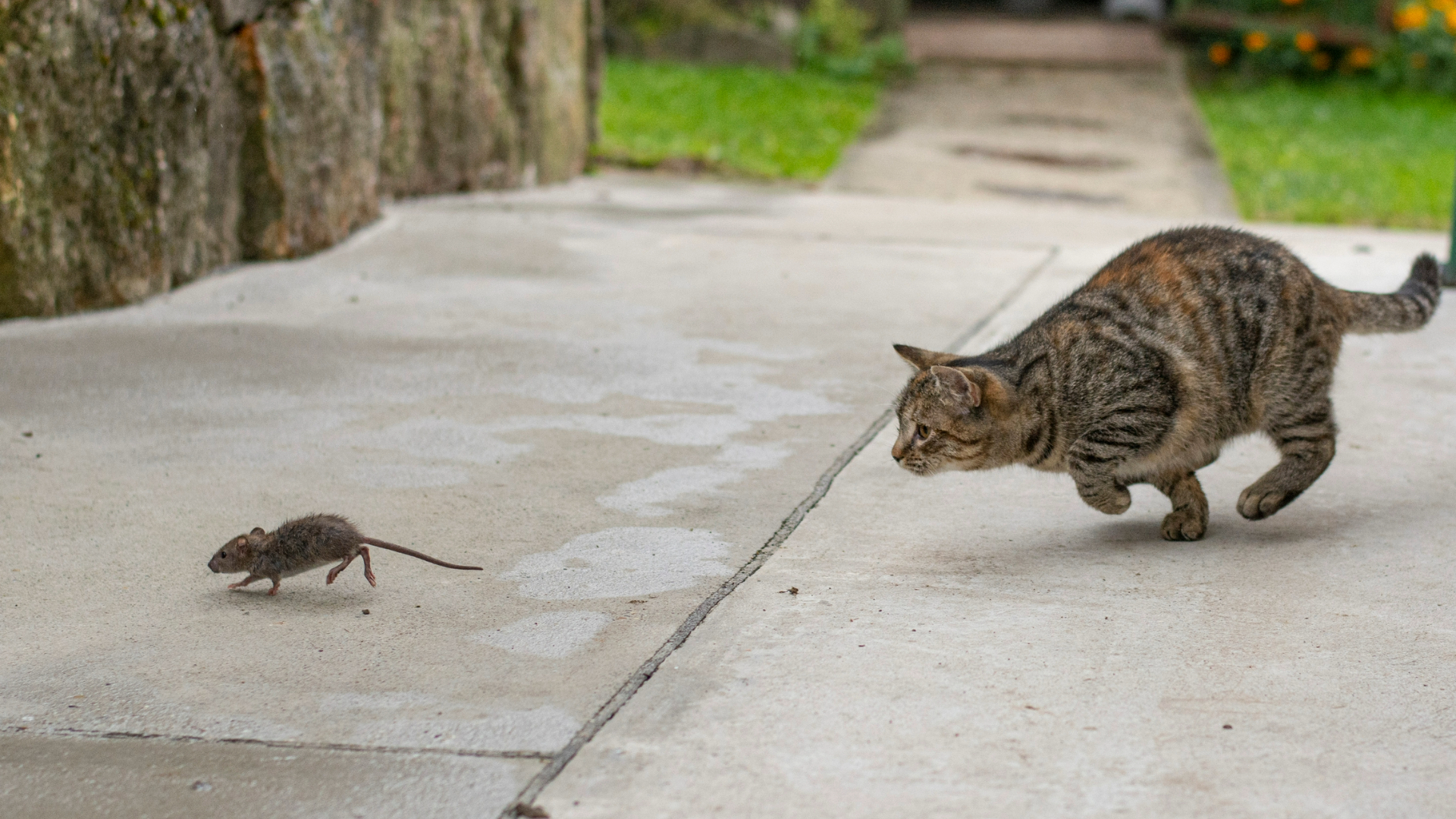
Kittens, elderly cats and those with a weakened immune system are likely to experience more severe problems than healthy adult cats if they become infected with rodent-borne diseases or parasites.
“It’s important to keep up-to-date with routine antiparasitic treatments, particularly if your cat is a keen hunter,” advises Bryon, adding, “Many of the diseases and parasites transmitted from mice to cats are zoonotic, meaning they can also be passed from cats to humans.”
But disease transmission isn’t the only risk that hunting mice poses to cats. Bryon warns, “If your cat eats a mouse, there is also a risk of them ingesting any toxins, pesticides or rodent poisons that the mouse has been exposed to.”
She advises, “Contact your vet if your cat has been bitten by a mouse and you notice any signs of irritation or swelling, or if your cat develops a fever, vomiting, diarrhea, signs of abdominal discomfort or lethargy after eating a mouse.”
How to keep mice out of your home
The good news is that there are humane ways to deter mice from taking up residence in your home.
Mice breed year-round and are always in search of cozy nesting places, so it’s important to block any entry points. Rodents can squeeze through tiny openings, so seal any cracks, holes or gaps in your foundations, walls, roof, and around doorways and windows with steel wool, copper mesh, caulk or expanding foam insulation, which will prevent them from gaining entry.
The strong scents of certain herbs and spices can act as a natural rodent deterrent, as mice have an extremely sensitive sense of smell. Try placing a few drops of cedarwood essential oil in your pantry, attic, near entry points or in the corners of rooms.
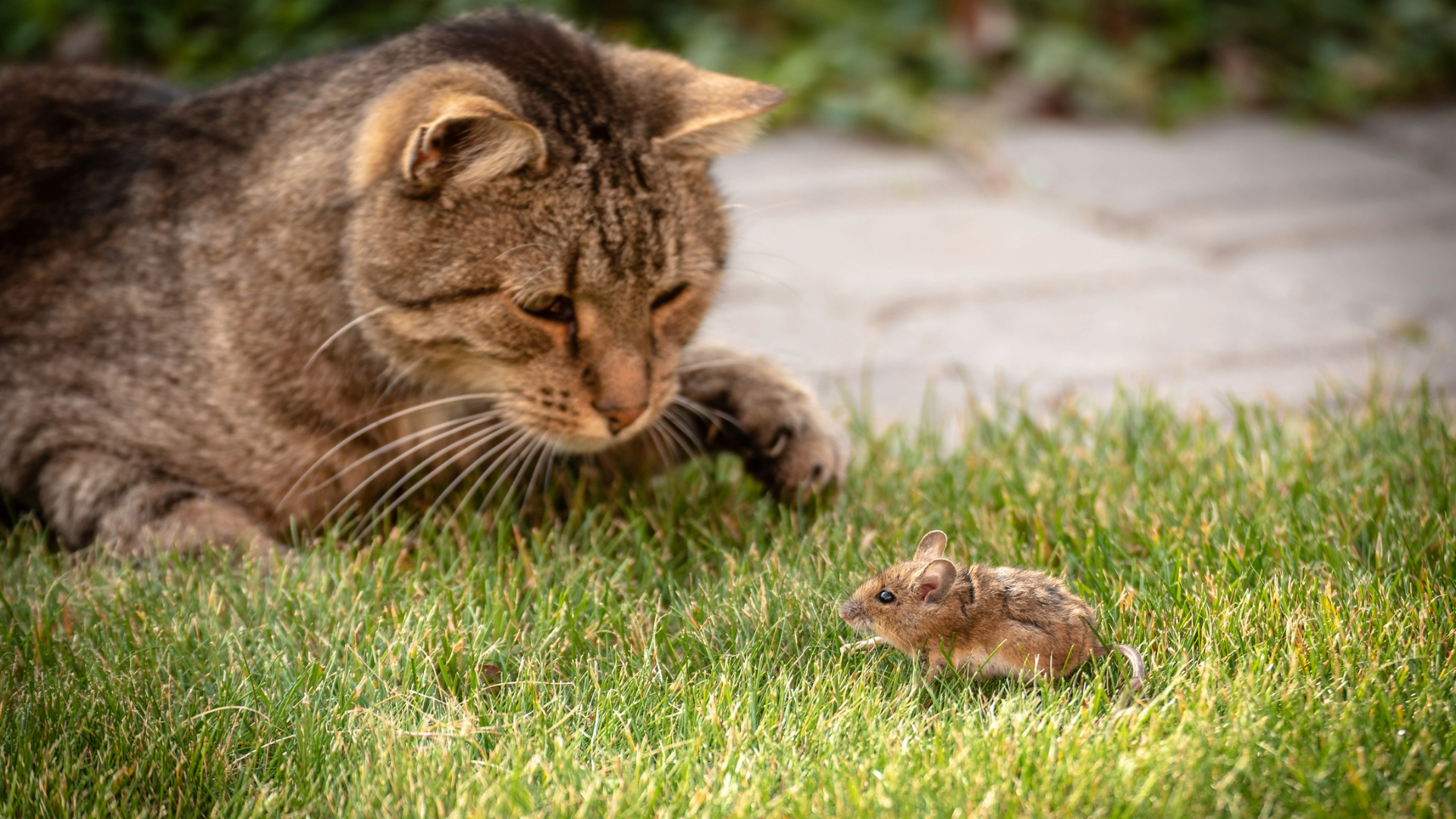
Growing marigolds and petunias in pots positioned by doors and windows is also said to keep mice at bay.
Eliminating access to food will reduce their incentive to enter your home. Store all human and pet food in airtight containers made of glass or metal. Mice are attracted to food residue, so regularly clean up crumbs and spills. Maintaining cleanliness will discourage them from sticking around.
If all else fails or your cat brings in a live mouse, use a humane trap to catch it and relocate it somewhere where it can find appropriate food and shelter.
Want to give your feline friend more mental and physical stimulation? Discover how to play with a cat. If you’re wondering why does my cat bring me toys, we reveal the most common reasons.
Claire Stares is a freelance writer and book author. She holds a BA (Hons) in English and a MA in Creative Writing and is currently enrolled on the MSc Clinical Animal Behavior program at the University of Edinburgh. Claire has a particular interest in feline behavior, welfare, and training, and holds an International Cat Care Certificate in Advanced Feline Behavior for Cat Professionals and a Diploma in Feline Health and Welfare. She has completed the ILLIS Animal Behaviour Courses Advanced Animal Training course and the Karen Pryor Academy Train Your Cat course.
She shares her home with five cats and volunteers for a cat welfare charity, so she's passionate about exploring how cat guardians can use positive reinforcement training and environmental enrichment to facilitate cooperative care, prevent problem behaviors, improve cats’ quality of life, and strengthen the cat-human bond.

